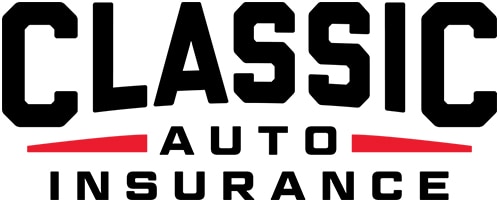When you own a classic or collector auto, it’s not a question of if, it’s a question of when. One day a broken part or a remarkably long journey will render your vehicle unsafe (for you and others), and you’ll be forced to trailer it.
Trailering a vehicle (especially one as valuable as yours) can be a difficult process, and the last thing you want is damage due to a simple mistake. Below we’ve collected tips and instructions to help you in preparation to trailer your vehicle.
Only as Good as Your Gear
The first step in any towing process is to check the equipment for damage and make sure it’s functional. One piece of bad equipment can mean disaster, so it’s important that each and every one be verifiably high quality. The equipment you’ll need includes:
- Vehicle for towing.
- Hitches.
- Straps.
- Ramps.
Check that the straps are usable and unfrayed (and don’t be tempted to take chances on a strap that looks risky—it’s not worth it). Doing this before the vehicle is decked up will save you lots of time in the case that a strap or two is damaged. You don’t want to wind up monotonously undoing whatever strap job you already completed.
Don’t forget to check the rating of your straps either. Some are rated to keep small cargo in the back of a pickup—mark our words, using those straps to lock your multi-ton vehicle to a trailer would be one of the lousier decisions of your lifetime.
Many people are incautious when selecting their towing vehicle, even though common sense says it’s one of the most important pieces in the towing process. If your towing vehicle doesn’t have pristinely functional brakes and lights, it’s not the right vehicle for the job.
You’ll also want to make sure it has a properly rated hitch. Lastly, check for your run-of-the-mill vehicle problems (leaking fluids, exhaust, etc.) so that you don’t end up with two vehicles stuck on the side of the road.
There are a number of items on the trailer to check as well:
- Wheel bearings
- Lights
- Deck integrity
- Tires
- Ramps
- Trailer rating (is it rated for your vehicle?)
Size Matters
Don’t forget to check your tongue weight. Tongue weight doesn’t refer to the feeling in your mouth after eating something sour—it’s the amount of weight on the nose of the trailer.
Tongue weight is all about balance. If it’s too much, it can lift the front of your towing vehicle into the air. However, not enough tongue weight can cause your tow vehicle to become unstable and sway while moving.
When you put your vehicle on the trailer, you want to be far enough up that the rear of the tow vehicle sinks a little (not a lot, though—just a little).
Strap It the Right Way
There are a lot of powerful physics at play when you tow your vehicle, which is why it’s vital you take care when strapping it to the trailer. Pay attention to the following rules very carefully:
- Don’t strap it down so hard that it compresses the suspension. Doing so would channel all the bumps and other vibrations from the road right into the materials of your car.
- Secure your straps to the unsprung parts of the car (such as shock mounts, lower control arms and solid axles).
- Use soft loops to avoid damage to the finish of your vehicle.
- Cross the straps at the end of each car (which allows you to use straps longer than two feet).
- When you ratchet the straps, they should end up taut. Test it with your foot—they should only give a small amount. You can roll the loose ends and tuck them under the tensioned straps to prevent them from flying loosely.
Be Observant During the Tow
If you’re driving a long distance, it’s absolutely not overkill or paranoia to pull over every 15 or 20 minutes to make sure everything is in order. Straps tend to loosen over time, so they may not be working as well after a long period of driving.
While you’re stopped, you also can check the tongue weight.
Prepare for the Worst
There are more safety concerns than you can count when transporting your vehicle. In the instance that the worst does happen, you should be prepared to handle it in the safest and least costly way. Let Classic Auto Insurance customize a policy to fit your needs.
We offer affordable Agreed Value coverage for a variety of collector, classic and custom vehicles. Our friendly, knowledgeable staff can answer your questions and give you a quote on the spot.
Call (888) 901-1338 or get an instant quote online, and see how we can help safeguard your dream car.





